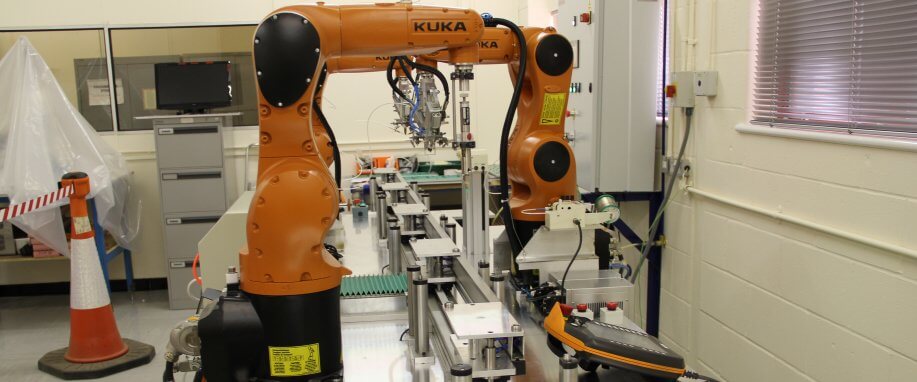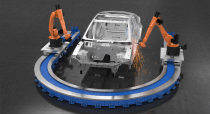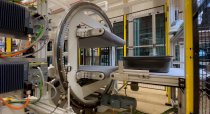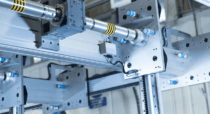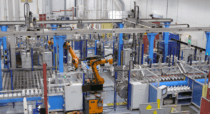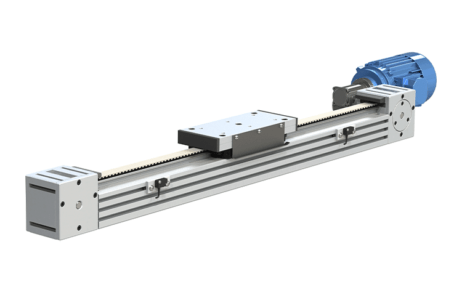Airdri has two elements to the company – they design and Manufacture hand dryers and also elevator door detection systems and speech units all of which are distributed across the globe.
Both divisions of the business have seen rapid expansion since the company was founded in 1983, this being achieved through a focus on sound engineering practises coupled with a competitively priced product.
When it comes to infrared door detection systems production has grown from 250 complete systems per week to the current 4000 per week. With expansion expected to continue there was a need to improve the production throughput of the printed circuit boards, a vital components in each system. A key area for improving output was to automate the soldering of components to printed circuit boards.
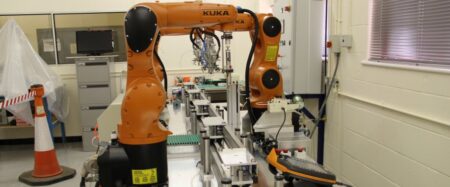
This would need to be performed under controlled speed conditions to a high level of positional accuracy if damage to the components was to be avoided. The boards would need to be fed to a specific position so that 3 processes could be carried out, optic and then links soldering followed by a coating process.
Solutions
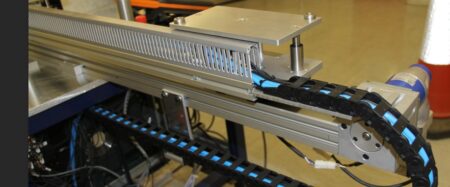
A DLS belt driven unit with 4 carriages fitted, one driven the others linked performed a walking beam arrangement; the 4 carriages used to locate the fixtures for the processes. Combined with 3 KUKA KR10 robots the carriages were indexed into position allowing the robot to move to pre programmed positions and perform the necessary processes.
“The robots are quite amazing and extremely accurate. We are undergoing trials for 6 months to also try the machine with other products, before installing in our manufacturing plant. I’ve been in engineering 50 years and it’s not a quick process to design new machines. HepcoAutomation have been very helpful and inventive in coming up with a really good solution. This is not the only system I’ve bought from HepcoAutomation and its always of excellent quality, reliable and definitely suits our needs.”
Scope of Supply
– 4.5m long DLS4 unit
– 3 x KUKA KR6 R700 5 Axis robots
– HepcoAutomation system integration with motors and control system
Result
This highly productive automation solution, designed and built in the UK, has enabled AirDri to revolutionise the way they produce printed circuit boards.
The facility provides a totally new opportunity to develop the soldering and assembly process producing 200,000+ individual elevator receiver / sensors packs per year. The principles applied to the soldering process can now also be applied to the manufacture and assembly of other components within the AirDri range.
The low maintenance aspect, and the use of only quality automation components, is seen as a vital ingredient in ensuring that demanding production throughputs can be met with consistent high quality.

